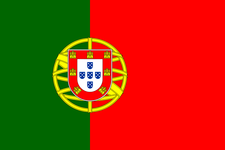What To Expect
Portugal is a spectacular country that packs quite a punch for its size with regards to all the great things it has to offer. From north to south, you will find beautiful towns and cities, amazing cuisine, lovely people, and great beaches. Add in the stunning volcanic Azores & Madeira islands and you have a perfect destination for your travels.
Most people know of Lisbon and Porto which are the country’s two largest cities and full of rich culture, beautiful architecture, and many great things to see and do, but there are many other cities worth visiting. For example, Coimbra, Sintra, Aveiro, Braga, Guimaraes, and Evora, to name a few of the most popular ones.
Then you have the whole Algarve region in the south which is famous for its great beaches and perfect waves for surfing. Millions of people go on vacation there every year. And if you want an island experience, you can choose between the Azores or Madeira, both of which offer stunning landscapes and views.
All in all, Portugal is one of those destinations that has so many great things to see and do that you just have to experience it for yourself!
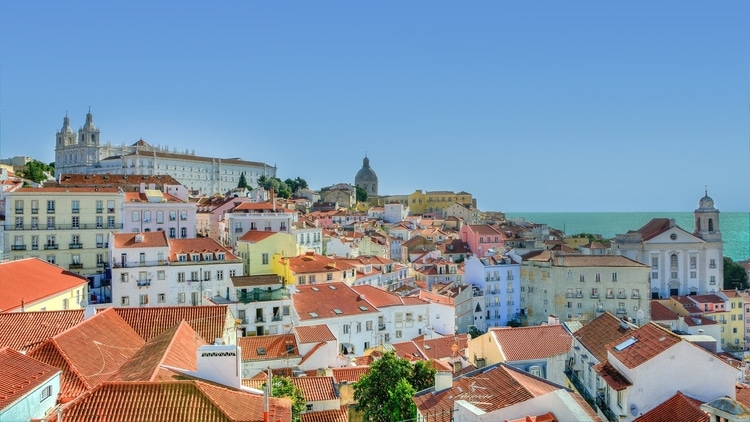
Portugal is part of the Schengen Area which has a single visa policy for all the countries that are in it. Citizens of most developed countries can enter the Schengen Area visa-free for up to 90 days in a 180 day period. If you are not a citizen of a visa-exempt country, you must go to the nearest Portuguese embassy and apply for a Schengen Visa to be granted entry.
There are no health risks in Portugal requiring any specific travel vaccinations for normal travelers. Make sure you are up to date on your standard vaccinations and consult a health professional for further advice.
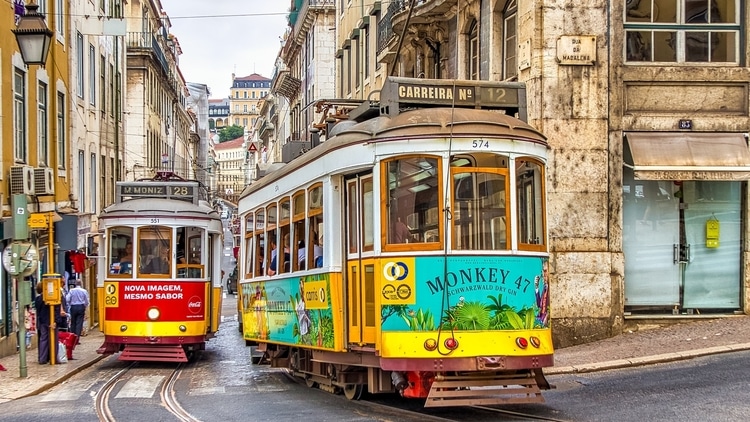
Key Information
Population: 10 Million
Capital City: Lisbon
Languages Spoken: Portuguese
Currency: Euro (EUR/€)
State Railway: CP
Driving Side: Right
Largest Airports:
1. Lisbon (LIS) – Humberto Delgado
2. Porto (OPO) – Francisco Sá Carneiro
3. Faro (FAO) – Algarve
4. Funchal (FNC) – Cristiano Ronaldo Madeira
5. Ponta Delgada (PDL) – João Paulo II
Best Time To Visit
Being a southern European country, most of Portugal benefits from a warm climate, but it does depend on the region. The north tends to experience more rain and cooler temperatures on average. However in general, winters are rainy, spring and autumn are pleasant, and summers are very warm.
Therefore, the best time to visit Portugal is during its shoulder seasons (April – May & September – October) when you aren’t surrounded by a million other tourists and the weather is not too hot, but not too cold either. Your flights & accommodation will also be cheaper and you won’t have to wait in long line-ups when visiting some of the main attractions.
If you have to travel during the high season, make sure to book your transportation and accommodation in advance as the summer is the busiest time of the year in Portugal!
High Season: July – August
Low Season: November – March
Top 5 Destinations

Lisbon

Porto

Algarve
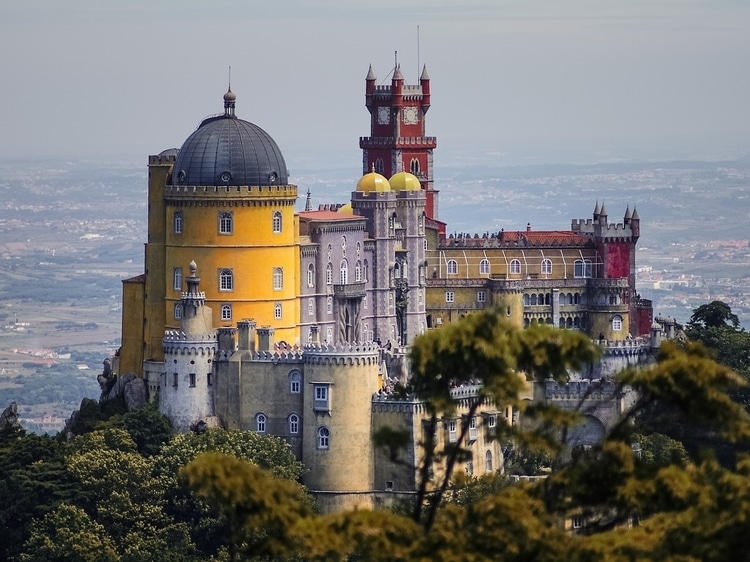
Sintra

Azores Islands
Currency Information
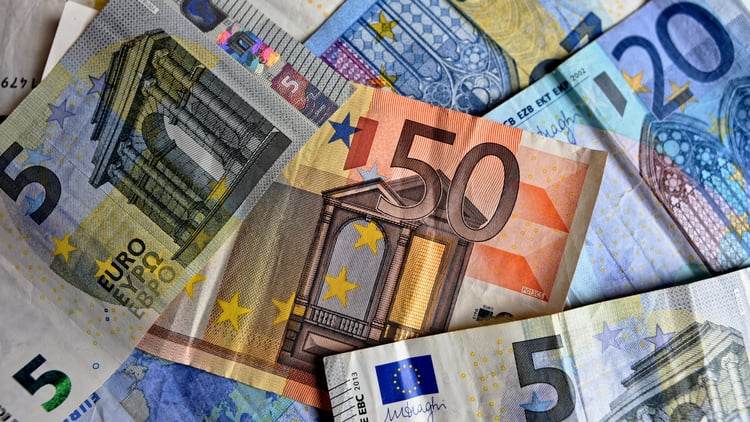
The currency used in Portugal is the Euro (EUR/€). The notes come in denominations of 5€, 10€, 20€, 50€, & 100€.
The Euro is further divided into 100 euro cents – “centimos” in Portuguese – (c). The coins come in denominations of 1c, 2c, 5c, 10c, 20c, 50c, 1€, & 2€.
Use the currency converter below to determine the latest exchange rate.
Cellphone Information
Portugal has very good overall 4G LTE coverage, but it can be spotty in rural areas. Make sure your phone is GSM-compatible with at least one of the primary 3G frequencies and one of the 4G LTE bands used in the country to ensure you will always have connection.
Learn more about this in my Guide to Travel-Ready Phones.
Calling Code: +351
Emergency Number: 112 (Police, Ambulance, & Fire)
3G Frequencies Used: 2100 (primary) + 900
4G LTE Bands Used: 3, 7, & 20
Power Outlet Information


Just like most of Europe, Portugal mainly uses the Type C power outlet. However, they also use the Type F outlet.
Type C & E plugs can fit in a Type F outlet as long as they are compatible. Make sure your Type C adapter is oval-shaped or you have a Type E/F adapter.
Get your compatible Type C & Type E/F adapter here.
The voltage used in Portugal is 230V. Learn more about how this may affect your electronic devices in my Guide to the Top Travel Accessories.
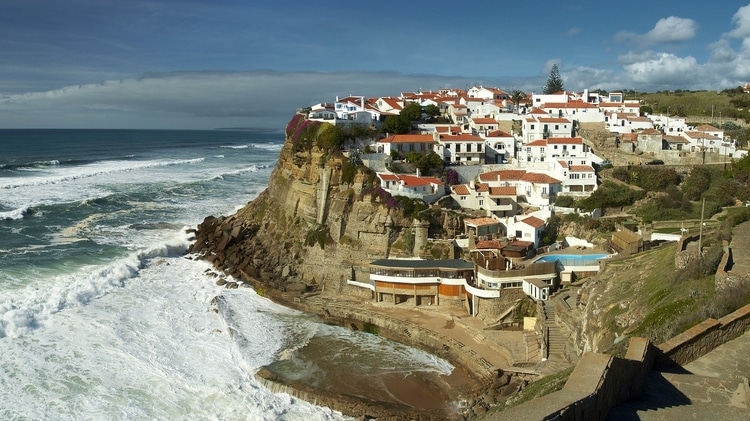
Tipping Guide
Tipping is not customary in Portugal, but it is appreciated. If you wish to tip, here are some guidelines to follow:
Hotel Bellhops: 1-2€ per bag
Hotel Housekeepers: 1-2€ per night
Restaurant Servers: round up to the nearest whole number or tip up to 10% of the total bill
Cafés & Baristas: round up to the nearest whole number
Bartenders: round up to the nearest whole number
Taxi/Uber Driver: round up to the nearest whole number
Tour Guide: up to 10% of the total tour price on single-day tours and up to 10€ per day on multi-day tours
Note: Any tips you do leave should be left in cash and given directly to the person you want it to go to as any tips left on card machines go straight to the owners.

